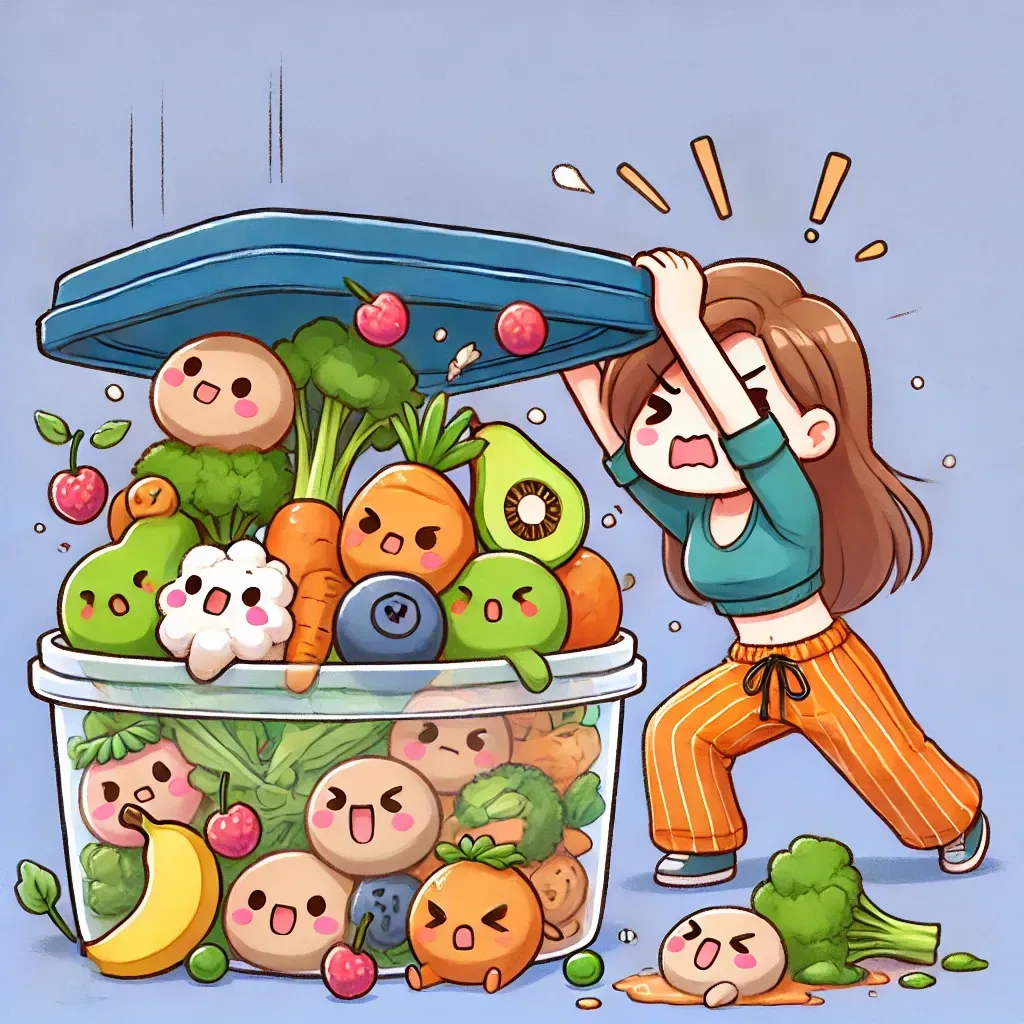Can't Sleep?
Up all night. Night Sweats. Stressed. Insomnia!
You’re up all night. Maybe you have night sweats. Maybe you’re just stressed out about work or the kids or grandma’s health. Maybe you’re PMSing, experiencing perimenopause, or actually going through menopause. Whatever the reason, insomnia totally sucks.
Lack of sleep affects our entire day, week and life. We all know it’s hard to function and complete the most minimal tasks while being tired, but when you have chronic fatigue, things are a lot worse than just feeling like you’re in a fog. When you’re tired, your body has to work in overdrive to keep going. It’s diverting more energy to the vital things, like making sure your heart is pumping, and ignoring some of the “less important” processes, like hormone balancing.
To make things really interesting, what if it’s your hormonal imbalance that’s screwing everything up in the first place? That means your imbalanced hormones are making you tired, so your body works harder to function and gives balancing your hormones a back seat, so your hormones get more imbalanced….
See the pattern? It’s a bad deal.
First, we have to figure out what’s up with your hormones. Hormones never get out of whack on their own, there is usually a reason, and that reason is almost always called stress. I know, you’re thinking, “That doesn’t surprise me…” and you’d be right. Stress comes in all forms—emotional, dietary, and pain and hidden inflammation—and women experience a certain amount of stress on a regular basis. It’s when your body decides it can’t handle that stress that things get messy.
The two main female hormones are progesterone and estrogen. Insomnia often occurs when progesterone is low and estrogen is high. This is known as estrogen dominance.
Progesterone is the calming female hormone, and an excess of estrogen causes irritability, tension, and anxiety. So if you have estrogen dominance, chances are you’re not going to enjoy your weekly yoga class very much, and you may even find it kind of annoying. On the flip side, high five for trying!
Yoga classes aside, you probably need some help in figuring out this hormone imbalance/insomnia situation. There are some things you can try at home like eating better, developing good sleep hygiene, and exercising, but if you don’t know the root of your issue, you are only helping at a surface level.
We already figured stress is the likely culprit. The stress hormone, cortisol, is kind of a bully. When you’re stressed, cortisol is going to push around progesterone (who is like the whimpy kid on the playground), and estrogen is going to seize the opportunity and rise to the top of the hill ready to reign. Sounds like a scary day at school? It is. Except it’s your daily life.
We have to take a look at your life and figure out what is causing that stress. Is it work or grandma’s health (i.e. emotional stress)? Is it gluten or dairy (i.e. dietary stress)? Is it that old knee injury acting up again (i.e. inflammation)? Is it something going on with your gastrointestinal health or microbiome (i.e. hidden inflammation)? Or is it the body’s natural process of menopause or early menopause when everything just gets messed up.
We also need to run some, dare I say it, tests. “I feel fine,” you say. “I just have a hard time sleeping at night.” Newsflash: that means something is not fine and we need to figure out what. And that involves testing. We’ll get a baseline of your hormone levels for estrogen, progesterone, testosterone, DHEA, cortisol, and thyroid. This will give us a good idea of what we need to focus on inside the body.
Once we have a few conversations about your current lifestyle, and we get the test results, we’ll develop a plan of action that might look a little something like this:
- New diet – low carb, fewer processed foods and refined sugars. Unique to your bio individual needs.
- Fewer stimulants in the form of coffee (gasp!), alcohol and other caffeinated drinks.
- Introduce a good combination of exercise and relaxation. Here’s where the yoga class comes in!
- Develop better sleep hygiene
- Support your adrenal glands (where the hormones come from) using supplements to balance hormones specific to your body’s needs.
- Balance your HPA Axis (hypothalamus pituitary adrenal axis - because these guys run the endocrine show).
- Heal you gut because the gastrointestinal tract is the hub or health.
This plan includes some pretty obvious steps, and you might feel like you can do it on your own, but life is best done with people, and so is health. Do you really think you can give up coffee without the support of friends and family?
Bottom line—if insomnia is taking its toll on you, do something about it. Don’t let estrogen boss around progesterone on the playground. Get it under control, and get your life back in balance again.
Don't Miss Out On More!

Heidi Toy FNTP
I help people all over the world heal by identifying and treating the root cause of their body imbalances. Through diet and nutrition, I guide them towards wholeness and balanced lives.
Heidi Toy Functional Medicine Blog

For many of us, our experience with food comes with some sort of baggage. Maybe you eat to cope with stress, anxiety or depression. Maybe you’ve grown up with value-words placed on food such as “junk” and “healthy,” and told you couldn’t eat the “good stuff” (brownies and ice cream) until you finished the “yucky stuff” (broccoli and lettuce). Or, even more serious, maybe you or a loved one has struggled or is struggling with an eating disorder. Food is amazing and life-giving. It can be used as a means to celebrate, socialize, or simply just provide fuel for the body. Our relationship with food shouldn’t be a difficult one, it should be an enjoyable one. A way to get to that healthy place in your relationship is to practice mindful eating. Mindfulness is a Buddhist concept of mediation that can help you recognize emotions and physical sensations present. Through mindful eating, you can learn to truly pay attention to your experiences, cravings and physical cues. The basics of mindful eating are: Eat slowly, without distraction. If you are eating with others, take a least five minutes at the start of the meal to enjoy the food on your plate before engaging in discussion. Pay attention to your body--are you still hungry, or are you getting full? Learn to distinguish between cravings and true hunger. Use all your senses when you sit down to a meal. Make an effort to notice how the food looks, smells, tastes, feels in your mouth, and sounds when you chew. Appreciate your food, who has prepared it (even if it’s you--what an accomplishment!), and where it comes from. Being mindful of your experience will help you slow down while eating. This can prevent overindulgence by making the act of eating intentional instead of automatic. It will also help you become aware of triggers that make you want to eat (are you truly hungry at 9pm every night when you sit down to watch that Netflix show, or do you just pour yourself a bowl of Chex Mix because that’s what you always do?). Knowing your triggers can give you time to process what’s truly going on and the ability to react properly.

Here are the essential functional medicine steps for Fifth Disease! If your child comes home with bright red cheeks that look like they’ve been “slapped,” chances are they may have fifth disease, also known as erythema infectiosum. This mild viral illness, caused by parvovirus B19, is common in kids and often spreads t

Successfully healing Adrenal Fatigue requires a holistic approach focussed on fixing the root cause of your problems and supporting your body through the healing process. This means we are going beyond just temporary symptom relief. We want you to return to vibrant health so you can get back to the active and healthy lifestyle that Adrenal Fatigue is holding you back from. (Adrenal Fatigue is more accurately known as HPA-D. Check out my blog HPA-D vs Adrenal Fatigue to learn more.)Again, we would be completing further testing to get to the root cause of your issues, but this protocol is a great starting point for healing. We focus on five essential areas for fast and long-term healing.

I want it! Sooooooo bad. But I want to lose weight, too. It’s not on my list of healthy, squeaky clean healing foods, but what will one little bite hurt? I can start again fresh and clean tomorrow. When brownies call your name and you are trying to break up with them, it is difficult to avoid the urge to want to indulge. But you know if you give in that you will berate yourself with guilt for the next 24-48 hours and the tsunami of eating everything off-plan will take over your life. One bite will start an avalanche... But you just can't stop thinking about the pan of brownies you made for the kids.

Did you know most people didn’t have refrigerators in their homes until well into the 1900’s? It wasn’t even invented for large scale commercial use until the mid 1800’s [1]. So how did people keep their milk cold and make their food last longer? Fermentation. It sounds like a gross concept, because we often associate fermentation with a bad odor, but foods like cheese, yogurt, sauerkraut and pickles are all fermented foods. And those aren’t gross, are they? Well, some might disagree with me about sauerkraut, but that’s beside the point. Fermented foods are digestive aids. Microscopic living organisms in fermented foods help extend the food’s shelf life, enhance flavor, and help the body absorb minerals. These organisms pre-digest the food, getting rid of harmful components, and create more vitamins and enzymes than the food began with. Enzyme-rich foods have many benefits including [2]: Increase digestibility of food we eat Boost immune system Increase alkalinity; neutralizing pH levels Provide a healthy balance of friendly flora in the gut (Learn more about your microbiome in my other blog posts ) Tone the colon and help with elimination Control cravings for unhealthier foods Eliminate toxins and undigested wastes in the body In the “old days,” people use to ferment all kinds of foods through pickling, canning, pasteurization and added salt. Nowadays, however, large scale fermentation has lost many of its nutritious benefits due to the need for speed to get the product on the shelf as fast as possible and as cheap as possible. The only true fermented foods you will find are sauerkraut, kombucha, yogurt and kefir, beans, wine and beer, some meats (such as salami and pastrami), legumes and nuts (such as tofu, soy sauce and miso), sourdough bread, and various kinds of vegetables [3]. Fun facts about sauerkraut: The Germans “stole” it from the Chinese! Sauerkraut (probably not labeled as such for the Chinese, but the same recipe) was one of the main foods for those who built the Great Wall of China. Genghis Khan brought it to Eastern Europe during an invasion. It also contains high levels of vitamin C, and sailors often took it on long journeys to prevent scurvy.

How can we best keep blood sugar stable? Do what our body is designed to do – use fat for energy. Our species did not survive the Ice Age because of vanilla coffee lattes and cheesecake. Throughout most of our history, we ate a diet that was likely 50-70 percent fat. Look at the old family photo albums, specifically pictures of people in the first half of the 1900s, before we had so many processed foods. You won’t see many fat people--in fact, most look darn skinny. If they lived on the farm, they ate lots of eggs, meat, milk, and vegetables out of their own backyards. “Diet foods” were non-existent. Heart disease was almost non-existent. Our metabolism is designed to work much better with fats better than with sugar. Fats provide the slow and steady fuel our body likes to use for energy. Think of fats as a slow-burning log on the fire. One log (i.e. one meal containing fats) lasts for hours. Starchy carbs, on the flip side, are like kindling. You constantly have to throw more twigs (chips, pasta, bagels) to keep the fire burning. The first step is to know your sugars by reading the labels, and then avoid said sugars as much as possible.








































































































